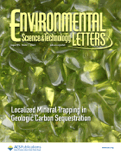
Environmental Science & Technology Letters
Scope & Guideline
Pioneering research for environmental breakthroughs.
Introduction
Aims and Scopes
- Environmental Chemistry and Toxicology:
The journal publishes research on the chemical processes affecting the environment, including the behavior and fate of pollutants, toxicological assessments, and the impact of chemicals on ecosystems and human health. - Emerging Contaminants and Chemical Exposure:
There is a strong emphasis on the study of emerging pollutants, such as per- and polyfluoroalkyl substances (PFAS), microplastics, and other synthetic chemicals, exploring their prevalence, effects, and mitigation strategies. - Wastewater and Water Quality Management:
Research related to wastewater treatment, water quality monitoring, and the detection of pathogens and contaminants in water systems is a core focus, addressing both public health and environmental sustainability. - Climate Change and Atmospheric Science:
The journal covers studies related to atmospheric chemistry, air quality, and the effects of climate change on pollutant emissions and transport, highlighting the interconnectedness of climate and environmental health. - Technological Innovations in Environmental Remediation:
Innovative methods and technologies for pollution remediation, resource recovery, and waste management are regularly featured, showcasing advancements in environmental engineering and technology.
Trending and Emerging
- Microplastics and Their Environmental Impact:
There is a notable increase in research investigating the sources, distribution, and ecological impacts of microplastics, highlighting their pervasive presence and the need for effective management strategies. - Health Impacts of Environmental Exposures:
Emerging studies focus on the health implications of exposure to environmental pollutants, particularly in relation to vulnerable populations, emphasizing the need for integrated environmental and public health research. - Machine Learning and Data Science Applications:
The application of machine learning and data science techniques to analyze environmental data and predict outcomes is gaining traction, reflecting a broader trend towards computational methods in environmental research. - Innovative Wastewater Treatment Solutions:
Research into novel wastewater treatment technologies and methods for resource recovery is on the rise, addressing both environmental sustainability and public health concerns. - Climate Change Mitigation Strategies:
Increased focus on research that examines the relationships between climate change and pollution, including studies on emissions reduction and adaptation strategies, is evident in recent publications.
Declining or Waning
- Traditional Environmental Monitoring Techniques:
There seems to be a reduction in studies focusing solely on conventional environmental monitoring techniques, as the field shifts toward more integrated and technological approaches, such as machine learning and advanced sensor technologies. - Fate of Legacy Pollutants:
Research on legacy pollutants, while still relevant, appears to be diminishing in comparison to the urgent focus on emerging contaminants, indicating a shift in priorities towards addressing newer environmental challenges. - General Environmental Policy Discussions:
Papers that broadly discuss environmental policies without a strong empirical or technological focus are less frequently published, as the journal emphasizes data-driven research and specific technological solutions.
Similar Journals
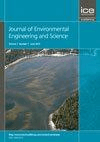
Journal of Environmental Engineering and Science
Fostering Insightful Dialogue on Environmental SolutionsJournal of Environmental Engineering and Science, published by Emerald Group Publishing Ltd, is a prominent academic platform dedicated to the dissemination of cutting-edge research in the fields of environmental engineering, chemistry, and science. This journal, with ISSN 1496-2551 and E-ISSN 1496-256X, features a comprehensive collection of studies that delve into innovative methodologies and practical applications aimed at solving pressing environmental issues. Having been published since 2002, it spans critical research years from 2015 to 2024, offering insights that are invaluable to both academics and practitioners alike. With its current rankings placing it in the fourth quartile for Environmental Chemistry and Engineering, and the third quartile in miscellaneous Environmental Science, the journal serves as a significant yet under-utilized resource for emerging scholars seeking to contribute to the ecological discourse. Though it does not offer Open Access, the content is meticulously curated to uphold academic rigor, catering especially to researchers, professionals, and students keen on advancing their understanding of environmental challenges and engineering solutions.

Environmental Chemistry Letters
Empowering the next generation of environmental scientists.Environmental Chemistry Letters, published by Springer Heidelberg, stands at the forefront of interdisciplinary research within the field of Environmental Chemistry. Since its inception in 2003, this esteemed journal has provided a dynamic platform for the dissemination of innovative studies and groundbreaking findings, contributing significantly to the understanding of chemical processes affecting the environment. With an impressive impact factor and ranking third out of 147 journals in Environmental Chemistry (98th percentile as per Scopus), it consistently attracts high-quality submissions from researchers around the globe. The journal maintains a Q1 category rank as of 2023, underscoring its prominent position in scholarly discourse. Environmental Chemistry Letters is dedicated to advancing knowledge on contemporary environmental issues, fostering solutions to mitigate chemical pollution, and promoting sustainable practices across various sectors. Researchers, professionals, and students alike will find invaluable resources within its pages as it continues to illuminate the path toward environmental sustainability.
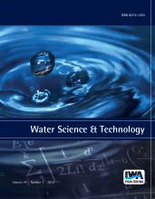
WATER SCIENCE AND TECHNOLOGY
Advancing sustainable solutions for a vital resource.WATER SCIENCE AND TECHNOLOGY, published by IWA PUBLISHING, is a leading academic journal dedicated to advancing the field of water science and technology. With a rich history dating back to 1970, the journal provides a platform for innovative research and technological advancements, catering to the vital challenges faced within the realms of environmental engineering and water resource management. As evidenced by its strong ranking in Scopus, where it holds a position of #86 in Water Science and Technology and #77 in Environmental Engineering, the journal exemplifies significant scholarly contributions, reflected in its Q2 quartile status in both categories as of 2023. Although not an open access journal, WATER SCIENCE AND TECHNOLOGY ensures that its articles are widely available to researchers, professionals, and students passionate about sustainable water solutions. With a continued commitment to excellence, this journal plays a crucial role in shaping the discourse surrounding water quality, conservation, and technology innovation, making it an essential resource for all stakeholders in this critical field.

WATER AIR AND SOIL POLLUTION
Elevating research on pollution for a healthier world.Water Air and Soil Pollution is a leading peer-reviewed journal published by Springer International Publishing AG, focusing on the vital fields of environmental sciences, ecological modeling, and pollution management. Since its inception in 1971, the journal has contributed significantly to advancing knowledge in the interdisciplinary realms of Water Science and Technology, Environmental Chemistry, and Environmental Engineering. With an impressive history, the journal currently holds a Q2 quartile ranking in several categories, reflecting its high impact and relevance in these essential areas of research. Its rankings—such as #95 in Environmental Science: Water Science and Technology—illustrate its standing in the academic community. Researchers and practitioners alike can access a wealth of studies and reviews that aim to address pressing environmental concerns and foster sustainable practices, although the journal is not Open Access. Located in Switzerland, Water Air and Soil Pollution continues to be a critical resource for those dedicated to understanding and mitigating pollution, making it an indispensable tool for anyone engaged in ecological and environmental research.

ACS ES&T Engineering
Driving Excellence in Chemical Engineering and Environmental Research.ACS ES&T Engineering, published by the American Chemical Society, stands as a leading journal in the realm of Chemical Engineering, Environmental Chemistry, and related fields, with a notable Impact Factor indicative of its scholarly influence. Emerging from 2021 with a vision to address contemporary challenges in engineering and environmental health, this Journal not only covers critical studies in Chemical Engineering but also excels in areas such as Process Chemistry and Technology, aligning with its Q1 status across several categories in 2023. With exceptional rankings in Scopus, including a percentile rank in the 90th for Chemical Health and Safety, it offers a significant platform for researchers, educators, and practitioners to disseminate innovative research and practices. Although the journal maintains a subscription model, its commitment to rigorous peer review and high-quality content ensures that readers gain access to pivotal findings essential for advancing knowledge and practice in a rapidly evolving scientific landscape. For those dedicated to tackling global engineering challenges, ACS ES&T Engineering is an invaluable resource.

Environmental Chemistry and Ecotoxicology
Connecting research and practice in environmental chemistry.Environmental Chemistry and Ecotoxicology, published by KEAI PUBLISHING LTD, is a pioneering Open Access journal that has been at the forefront of research since its establishment in 2019. With an impressive trajectory that converges research excellence until 2024, the journal focuses on critical developments in the fields of environmental chemistry and ecotoxicology. It boasts a commendable market position, ranking in the top 3% among leading journals in Agricultural and Biological Sciences, Environmental Science, and related disciplines, as demonstrated by its high Scopus ranks. The journal is committed to disseminating groundbreaking research that addresses the pressing challenges of environmental sustainability and chemical safety, making it an essential resource for researchers, professionals, and students aiming to navigate the complexities of our ecological landscapes. By embracing an Open Access model, the journal ensures that valuable insights are accessible to a global audience, fostering collaboration and innovation in the field.
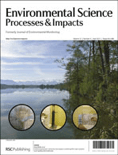
Environmental Science-Processes & Impacts
Transforming research into real-world environmental action.Environmental Science-Processes & Impacts is a premier journal published by the Royal Society of Chemistry, focusing on critical research in the field of environmental science. With ISSN 2050-7887 and E-ISSN 2050-7895, this journal has established itself as an authoritative source of knowledge since its inception in 2012, maintaining a remarkable Q1 quartile ranking across significant categories such as Environmental Chemistry, Management, Monitoring, Policy and Law, Medicine, and Public Health for the year 2023. It stands as an essential resource for professionals, researchers, and students, aimed at advancing scientific understanding and solutions to pressing environmental issues. With impressive ranks in Scopus, including #45 in Public Health and #27 in Environmental Chemistry, the journal provides a platform for impactful research and interdisciplinary collaboration, emphasizing open access to foster the dissemination of knowledge globally. Join a community committed to exploring the interconnectedness of environmental processes and their implications for society by contributing to or learning from cutting-edge studies published in this esteemed journal.
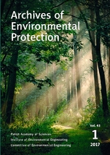
Archives of Environmental Protection
Advancing the Frontiers of Environmental KnowledgeArchives of Environmental Protection, published by the Polish Academy of Sciences, is a pivotal journal in the field of Environmental Science. With an ISSN of 2083-4772 and E-ISSN of 2083-4810, this journal serves as a critical platform for disseminating innovative research and comprehensive reviews that address the complexities surrounding environmental issues. As of 2023, it holds a respectable Q3 ranking in Environmental Science, reflecting its relevance and contribution to the academic community, indicated by a Scopus rank of 124 out of 233 in the General Environmental Science category. Although it operates without Open Access, the journal's consistent publication from 2007 to 2024 emphasizes its commitment to advancing knowledge in diverse areas of environmental protection. Researchers, professionals, and students are encouraged to engage deeply with the wealth of insights offered through the rigorous peer-reviewed articles presented in this journal, which strive to foster sustainable practices and environmental stewardship.
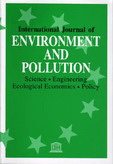
INTERNATIONAL JOURNAL OF ENVIRONMENT AND POLLUTION
Illuminating the Path to Effective Pollution ManagementInternational Journal of Environment and Pollution is a pivotal publication in the field of environmental science, dedicated to advancing knowledge concerning pollution and its multifaceted impacts on ecosystems and human health. Published by InderScience Enterprises Ltd, this journal, which has been in circulation since 1991, serves as a vital platform for researchers, professionals, and students interested in the management, monitoring, policy, and law associated with environmental issues. With an ISSN of 0957-4352 and E-ISSN 1741-5101, it offers a critical perspective on pollution challenges, emphasizing Waste Management and Disposal. Although placed in the Q4 quartile of its categories, it remains an important resource for understanding the complexities of environmental impact, contributing to policy formulation and ecological research. The journal does not offer Open Access, but it can be accessed through various academic libraries and institutions that value comprehensive studies in environmental management. Engage with the latest findings and discussions that address pressing environmental concerns today!

ENVIRONMENTAL SCIENCE & TECHNOLOGY
Pioneering the intersection of science and technology for a greener future.ENVIRONMENTAL SCIENCE & TECHNOLOGY, published by the American Chemical Society, is a premier journal dedicated to the rapid dissemination of innovative and impactful research in the fields of environmental science and technology. With an ISSN of 0013-936X and an E-ISSN of 1520-5851, this journal boasts a remarkable Q1 ranking across multiple categories including Chemistry (Miscellaneous), Environmental Chemistry, and Medicine (Miscellaneous) for 2023, reflecting its crucial role in advancing interdisciplinary approaches to pressing environmental issues. Notably, it holds prestigious Scopus rankings, being ranked #26 in General Chemistry and #10 in Environmental Chemistry, placing it in the top portions of its respective categories with unmatched visibility at the 93rd percentile. Spanning a publication history from 1967 to 2024, the journal serves as a vital resource for researchers, professionals, and students aiming to contribute to sustainable solutions and scientific advancements. By prioritizing rigor and relevance, ENVIRONMENTAL SCIENCE & TECHNOLOGY fosters academic dialogue and innovation within these crucial fields, making it an essential read for anyone invested in environmental progress.